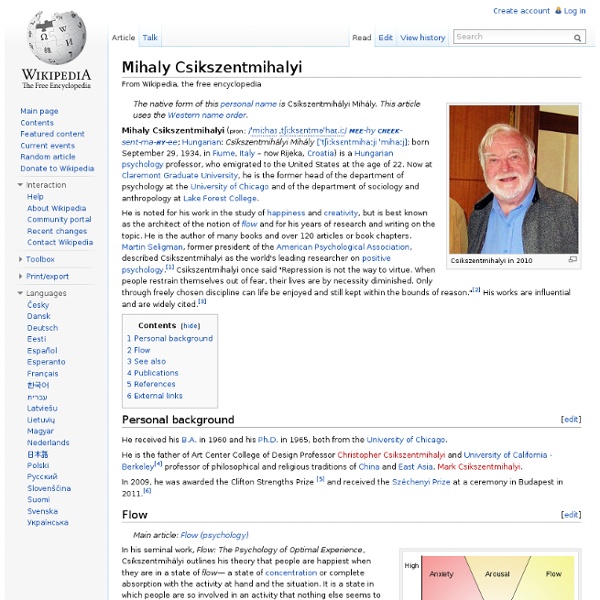Knowing Knowledge - Google Libri
消费者购买决策理论
出自 MBA智库百科( 消费者购买决策理论 消费者购买决策是指消费者谨慎地评价某一产品、品牌或服务的属性并进行选择、购买能满足某一特定需要的产品的过程。 广义的消费者购买决策是指消费者为了满足某种需求,在一定的购买动机的支配下,在可供选择的两个或者两个以上的购买方案中,经过分析、评价、选择并且实施最佳的购买方案,以及购后评价的活动过程。 许多学者对于消费者购买决策有不同的描述过程,为了指导读者对消费者购买决策模式有一个较好的认识,本文作者通过查阅文献总结出消费者购买决策的一些特点,为消费者购买决策模型的分析与构建提供评价参照系和理论依据。 (1)消费者购买决策的目的性。 (2)消费者购买决策的过程性。 (3)消费者购买决策主体的需求个性。 (4)消费者购买决策的复杂性。 决策内容的复杂性。 购买决策影响因素的复杂性。 (5)消费者购买决策的情景性。 1,问题认知 消费者认识到自己有某种需要时,是其决策过程的开始,这种需要可能是由内在的生理活动引起的,也可能是受到外界的某种刺激引起的。 例如,看到别人穿新潮服装,自己也想购买;或者是内外两方面因素共同作用的结果。 2,搜寻信息 信息来源主要有四个方面: 个人来源,如家庭、亲友、邻居、同事等; 商业来源,如广告、推销员、分销商等; 公共来源,如大众传播媒体、消费者组织等; 经验来源,如操作、实验和使用产品的经验等。 3,评价备选方案 消费者得到的各种有关信息可能是重复的,甚至是互相矛盾的,因此还要进行分析、评估和选择,这是决策过程中的决定性环节。 在消费者的评估选择过程中,有以下几点值得营销者注意:1、产品性能是购买者所考虑的首要问题;2、不同消费者对产品的各种性能给予的重视程度不同,或评估标准不同;3、多数消费者的评选过程是将实际产品同自己理想中的产品相比较。 4,购买决策 消费者对商品信息进行比较和评选后,已形成购买意愿,然而从购买意图到决定购买之间,还要受到两个因素的影响: 1, 他人的态度,反对态度愈强烈, 或持反对态度者与购买者关系愈密切,修改购买意图的可能性就愈大; 2, 意外的情况,如果发生了意外的情况—失业、意外急需、涨价等,则很可能改变 购买意图。 5,购后评价 包括:1,是购后的满意程度;2,购后的活动。 消费者购后的满意程度取决于消费者对产品的预期性能与产品使用中的实际性能之间的对比。 (一)复杂的购买行为 信息。
Flow (psychology)
Concentrating on a task is one aspect of flow. In positive psychology, flow, also known colloquially as being in the zone, is the mental state of operation in which a person performing an activity is fully immersed in a feeling of energized focus, full involvement, and enjoyment in the process of the activity. In essence, flow is characterized by complete absorption in what one does, and a resulting loss in one's sense of space and time. Flow shares many characteristics with hyperfocus. However, hyperfocus is not always described in a positive light. Some examples include spending "too much" time playing video games or getting side-tracked and pleasurably absorbed by one aspect of an assignment or task to the detriment of the overall assignment. Just as with the conditions listed above, these conditions can be independent of one another. Ideas similar to flow have been recognized throughout history and across cultures. Schaffer (2013) proposed 7 flow conditions: Further, he writes: Notes
Facebook worth more than Portugal? Hell, it's worth a LOT more than THAT
Worstall on Wednesday As an esteemed editor said, one not a million miles away from here, the fact that Facebook has commissioned a report showing what vast amounts of wonderful, beneficial economic activity it is responsible for indicates that the company in fact contributes nothing. Stands to reason, that does. And even once one allows for a certain cynicism on the part of the said editor it is actually true that this report is a great big pile of steaming effluent, one to rival the worst morning-after-an-overly-brisant-curry outrage. Not that the Wall Street Journal uses quite that language but the message is clear: “The results are meaningless,” Stanford economist Roger Noll said in an email. As I say, steaming, and of the brownest. Further, the things that they've added together as being benefits are not, in fact, benefits. GDP is the monetised value of all production, all income, or all consumption. So, in the GDP statistics Facebook's value is the advertising that it sells.
Il Nostro Approccio
Presentazione approfondita del Framework di The Natural Step Se hai già familiarità con il concetto di sostenibilità e con il Framework di The Natural Step e stai cercando degli approfondimenti, sei nel posto giusto. Il Framework di the Natural Step rappresenta l’applicazione pratica di un modello a 5 livelli per lo sviluppo sostenibile strategico. Il consenso scientifico sulla prospettiva di alto livello del nostro sistema (la società umana all’interno della biosfera), permette di identificare le condizioni che definiscono il successo nel nostro sistema. Per il singolo individuo, un’organizzazione e l’intera nostra società, le condizioni di sistema possono essere riformulate come principi di sostenibilità. La metafora dell’imbuto ci aiuta a visualizzare il sistema, le sfide ad esso connesse ed a comprendere le condizioni per il successo. Una volta definito il successo all’interno del sistema, abbiamo bisogno di formulare una strategia per raggiungerlo. Nulla scompare Tutto si diffonde
Le modèle de Engel, Kollat et Blackwell « Cours marketing, eMarketing et Webmarketing
L’objectif du modèle de Engel, Kollat et Blackwell : Mettre l’accent sur le processus décisionnel lors d’un achat pour découvrir la manière et les raisons d’agir du consommateur. Le processus décisionnel Reconnaissance du problème Elle est liée à la perception d’une différence entre la situation idéale et la situation réelle Recherche d’information La recherche interne consiste à s’appuyer sur l’expérience et l’information stockée. Evaluation et choix Les critères d’évaluation sont les croyances, influencées par la publicité, les attitudes, et les intentions d’achat. Résultats Ce sont les conséquences de l’achat. Le processus d’information et de rétention sélective de l’information C’est la mise en jeu de mécanismes perceptuels de filtrage des stimuli, réduisant quantitativement et qualitativement les informations afin de construire une base de données quantitativement et qualitativement acceptable. Il y a 5 phases : Les facteurs complémentaires du modèle de Engel, Kollat et Blackwell
uk.businessinsider
eduMOOC: Online Learning Today... and Tomorrow
Program and Resources Expanding Daily!Visit Often for Updates! The gadget spec URL could not be found The Center for Online Learning, Research and Service at the University of Illinois Springfield welcomes you to a Massive Open Online Class (MOOC) on “Online Learning Today...and Tomorrow.” It will continue through August 19. It is totally open, free, and collaborative. You are invited to register (see right column) with only your name and email address so you can be given access to all materials, panels and discussions. Enrollment Update! We are elated to see enormous interest in this topic! We will add all who register to the Google Group in daily uploads. Some Media Mentions elarnspace blog by George Siemens: eduMOOC News by myweb2learn Columbia Teacher's College blog edLab: OLLI Online - University of Virginia Eagle Dawg Blog Views, dreams & creative writings, Anil Prasad CollabOERate Blog, Wayne Mackintosh adVancEducation Decision Doc UIC News Techknow Tools Learner Weblog eduMOOC 4 All Wikis



